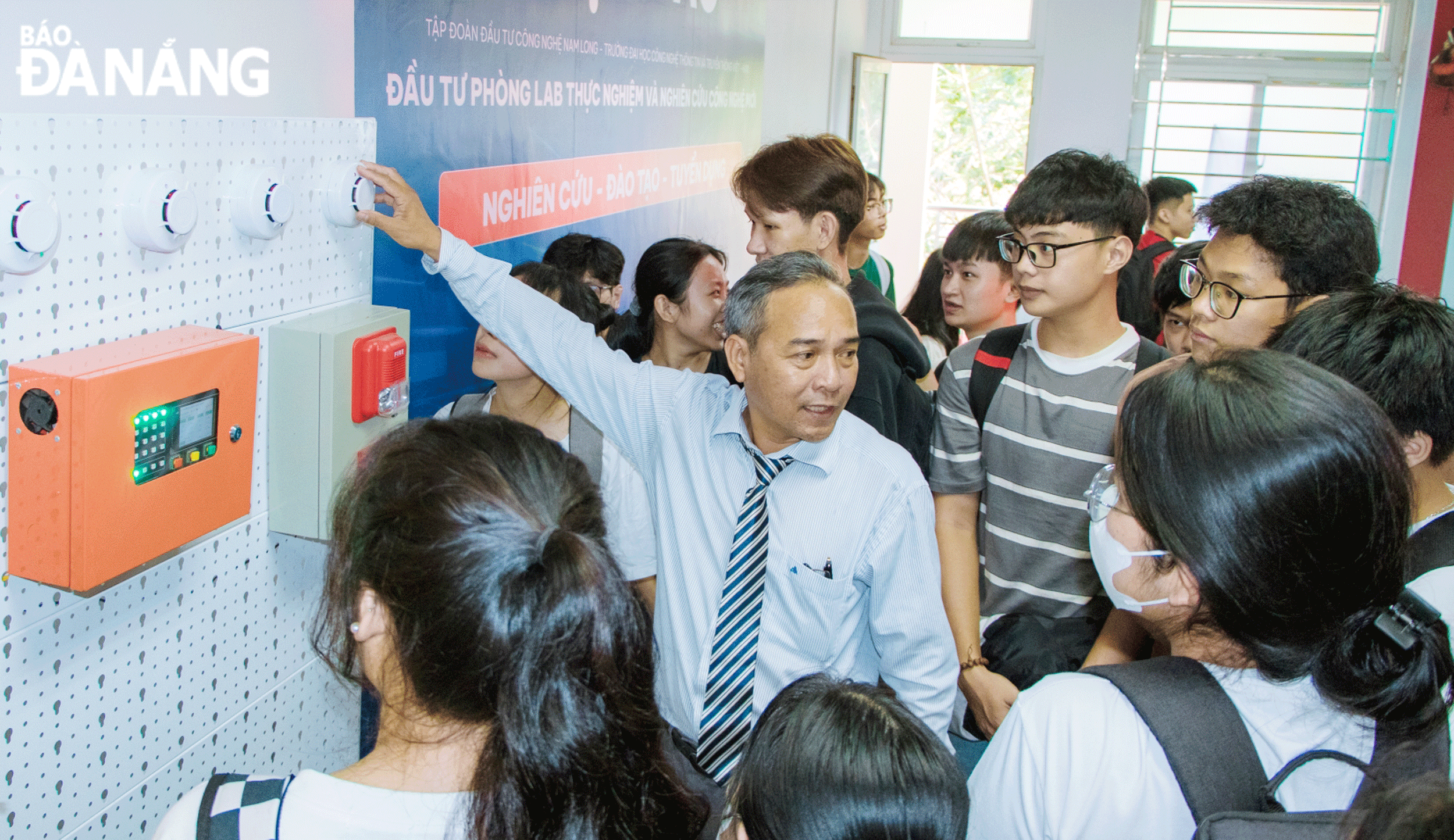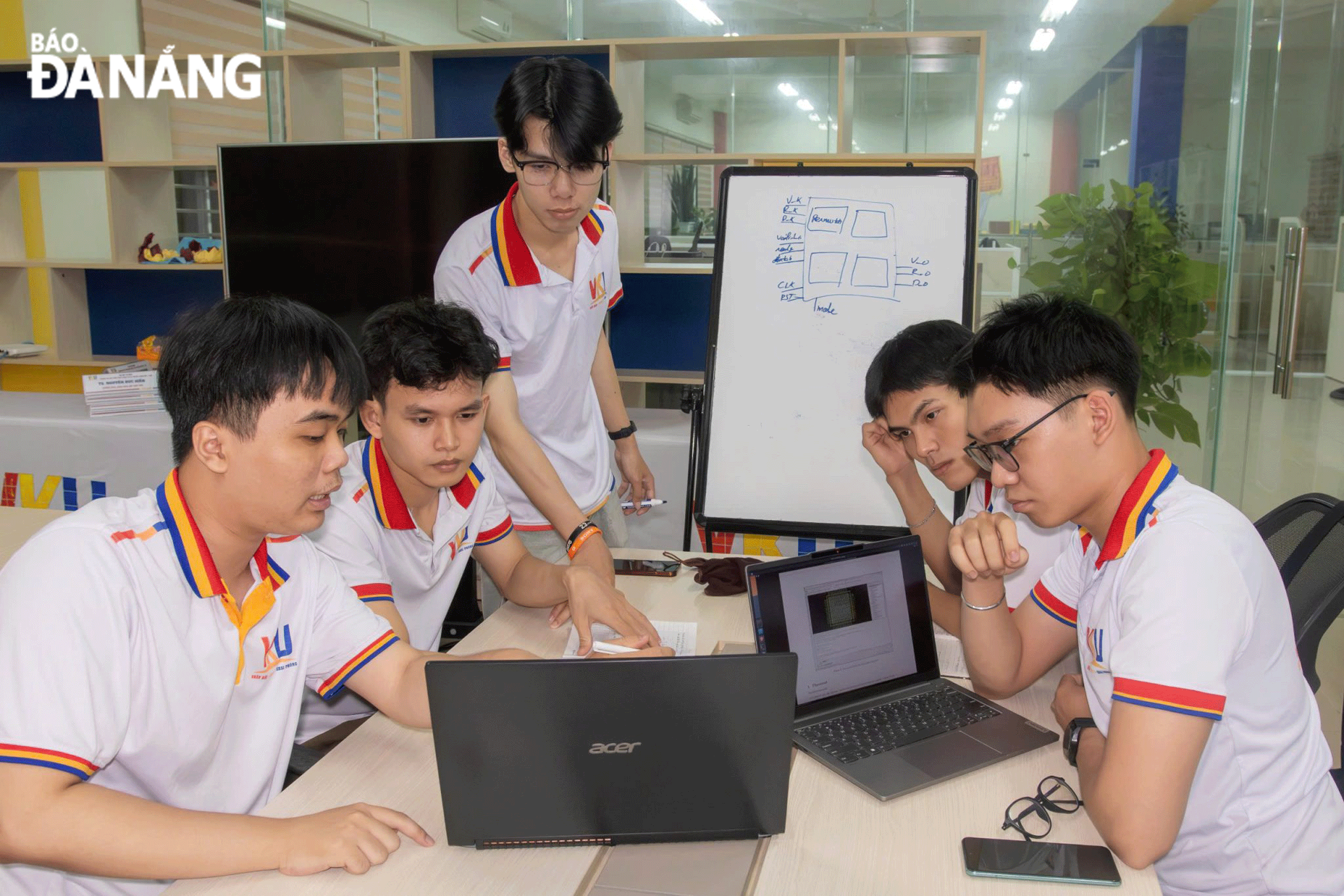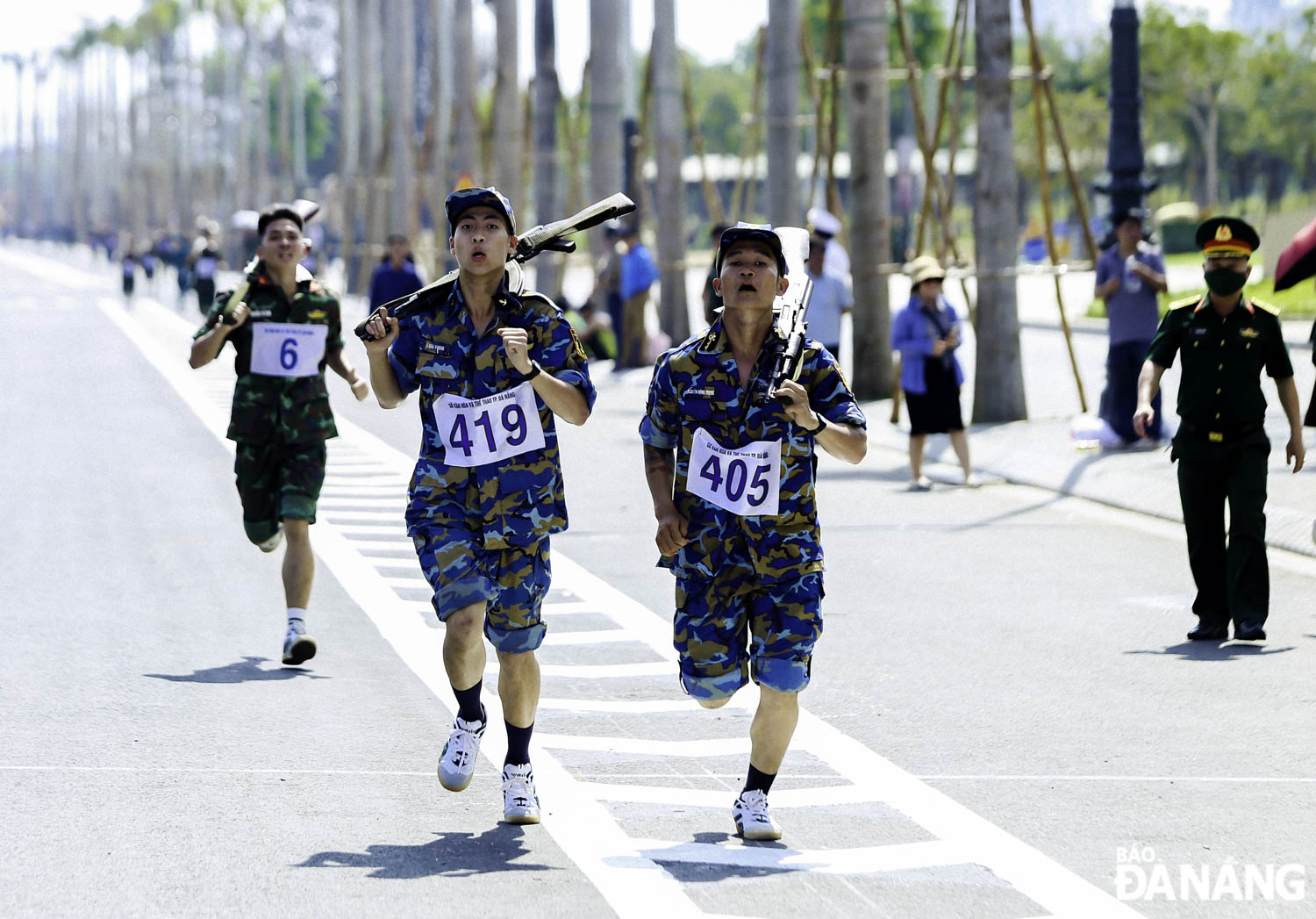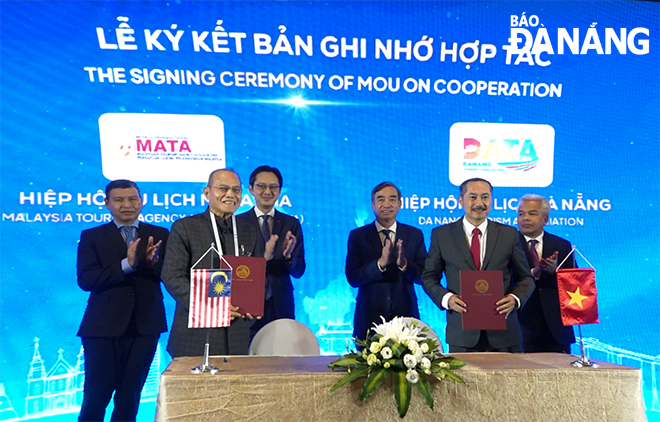Developing high-quality human resources in microchips and semiconductors
In response to Conclusion No. 79-KL/TW in 2024 of the Politburo on continuing to implement Resolution No. 43-NQ/TW of the Politburo (term XII) on building and developing Da Nang by 2030, with a vision towards 2045, member schools of the University of Da Nang increase resources to improve the quality of microchip and semiconductor training.
This task is to be ready to provide the labour market with professional microchip and semiconductor engineers, meeting the development needs of the hi-tech industry in the context of international integration.
 |
| Universities invest in modern facilities to meet the demand for training high-quality human resources. VKU students are seen practicing in the laboratory and research digital technology. Photo: NGOC HA |
Steady steps in training
In the 2024 - 2025 school year, the Da Nang University of Science and Technology, a member school of the UD will open a new major in microelectronics - microchip design under the field of electronics and telecommunications engineering. To meet social expectations, the school actively prepares the necessary conditions for training the first batch of students majoring in microelectronics - microchip design, as well as other majors related to this field.
With regard to the training programme, the school closely follows the practical requirements of the semiconductor microchip industry, based on carefully designed output standards to ensure that students are fully equipped with specialized knowledge and skills. Important subjects related to microchip design such as analog microchip design, digital microchip design and physical design are included in the programme, thereby helping students have a comprehensive foundation in this field of study.
This tertiary establishment has basic and advanced electronics laboratories supported by such enterprises as Fujikin, Renessas and FPT.
At the same time, a new microchip design practice room with 40 high-configuration computers, equipped with industry-standard microchip design software, has been constructed. In addition, in order to help students approach reality, the school opened a basic electronics laboratory with equipment sponsored by ASIC Keysight Smart Bench Essentials Company.
To improve the quality of training, the University of Science and Technology constantly trains and improves the capacity of the teaching staff.
The university has coordinated with the National Innovation Centre (NIC) and experts with many years of experience in the field of semiconductor microcircuits from the United States to organise in-depth training courses improving the professional qualifications of lecturers in the field of microcircuit design.
Also, the school has partnered with large companies in this field such as Cadence, Synopsys, Renesas, Siemens and Microchip to develop appropriate teaching content.
Similarly, in 2024, the Viet Nam - Korea University of Information and Communications Technology (VKU) recruited 60 semiconductor microcircuit design engineers.
It is expected that by 2028, the total training target will be from 600 to 1,000 engineers, and at the same time, the training programme for majors close to semiconductor microchips will be adjusted to conduct student transfer in order to meet the human resource needs of this field.
The first semiconductor microchip design engineer training course in the 2024 - 2025 enrollment season at VKU has been built according to the international standard training programme, with a duration of 4.5 years, 160 academic credits.
In addition, six VKU lecturers out of a total of 25 participants selected from universities across Da Nang have completed the first source lecturer training course.
Six other VKU lecturers are studying the training programme on testing, packaging of microchips and semiconductors organised by the Arizona State University in the United States under the sponsorship of the International Technology Security and Innovation Fund of the US Department of State.
In addition, VKU has opened a master’s training programme, developed a research group on semiconductor microchips, built a human resource training plan on packaging and testing of semiconductor microchips, launched upskills classes for students; and trained a team of highly-qualified lecturers.
VKU has established the Semiconductor and Smart Technology Hub (VKU-SSTH), which houses top-notch equipment for teaching and research purposes, and the Laboratory for New Technology and Semiconductor Research in collaboration with Nam Long Group, strengthened cooperation with many domestic and foreign strategic partners such as the Institute of Information Technology under the Ha Noi National University, the Institute of System Integration, Le Quy Don Technical University, the FPT Software Company Central Region, the Kyunghee University in South Korea and the Korea Fabless Industry Association.
 |
| A group of VKU students participate in the Universalization of IC Design from CASS (UNIC-CASS 2024) organised by the IEEE Circuits and Systems Society (CASS). Photo: NGOC HA |
Need for specific training mechanisms
Assoc. Prof. Dr. Nguyen Huu Hieu, the Rector of the University of Technology, said that with the strong development of the semiconductor industry and the trend of Da Nang becoming a centre attracting semiconductor enterprises, improving the quality of semiconductor human resource training is a key factor to meet the human resource needs of the city as well as the whole country.
In order to achieve this goal, it is necessary to synchronously deploy many solutions from building training programmes close to reality, develop modern facilities, train a team of highly specialized lecturers to expanding cooperation with enterprises in the industry.
Cooperation with enterprises in the semiconductor industry is a very important factor in helping to improve the quality of human resource training.
“The school strengthens connections with domestic and foreign companies in this field to create many opportunities for knowledge sharing, practice, and internship for students,” Assoc. Prof. Dr. Nguyen Huu Hieu said.
According to Assoc. Prof. Dr. Nguyen Ngoc Vu, Director of the UD, the city has a system of large universities with a large student population, an average of about 800 students per 10,000 people (4 times the national average); a team of highly qualified scientists with over 1,000 PhDs, Associate Professors and Professors.
These are favourable conditions for Da Nang to become a centre for startups and innovation and a centre for training semiconductor technology human resources.
“The UD is ready to carry out the task of training semiconductor technology human resources according to the national government's project. However, to successfully implement the project, a synchronous solution is needed.
In particular, the the national government needs to soon approve the project ‘Developing human resources for the semiconductor industry by 2030, with a vision towards 2045’ that the Vietnamese Ministry of Planning and Investment has developed and submitted it to the national government, especially prioritising the allocation of resources to implement the project, and at the same time having a specific mechanism for investment and procurement in the spirit of ‘creating breakthroughs’ to successfully implement the project.
The Vietnamese Ministry of Education and Training needs to have a specific mechanism for training human resources for chips and semiconductors, especially the calculation of quotas and the organic team of the industry closer to current regulations, because this is a new profession.
However, it is necessary to have a solution to control the quality of training. In the immediate future, priority will be given to assigning tasks to large universities with a tradition of training in technology and engineering, with potential in terms of good quality teaching staff and incoming students,” said Associate Professor Dr. Nguyen Ngoc Vu.
Reporting by NGOC HA – Translating by A.THU








